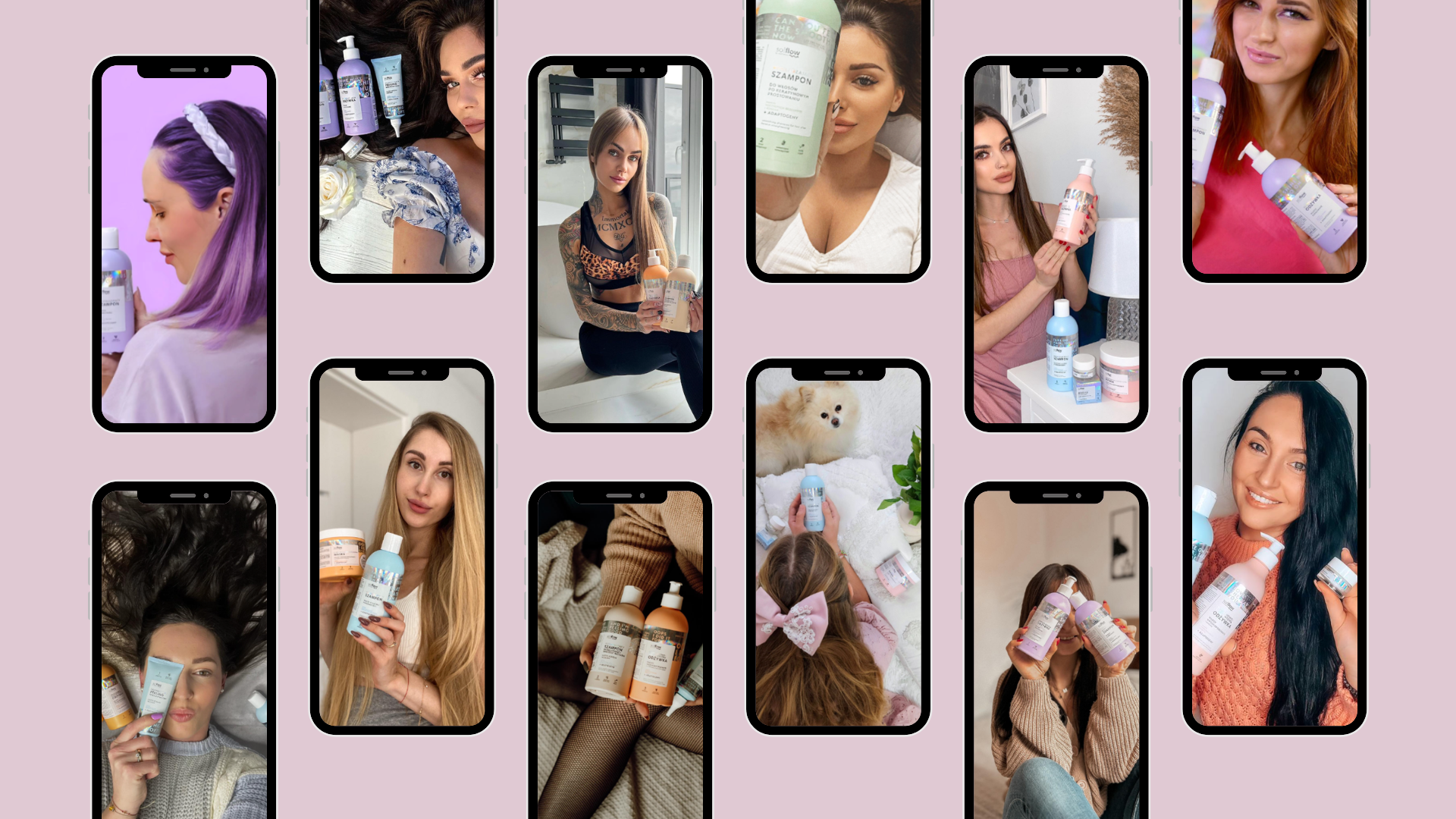Cosmetic Brands Leverage Influencer Marketing to Tackle New Challenges
In the dynamically changing cosmetic industry, brands face challenges that require innovative marketing approaches. Rapidly evolving trends, increasing consumer expectations regarding transparency and personalization, and heightened competition, especially in e-commerce, are just some of the difficulties faced. In response to these challenges, influencer marketing emerges as a key strategy, enabling brands to build trust, loyalty, and effectively communicate with consumers.
Understanding and Meeting Individual Consumer Needs
In the era of personalization, consumers expect products tailored to their individual needs. Influencers, especially nano and micro influencers, due to their authenticity and close relationships with followers, can effectively promote the values of products that meet the specific needs and preferences of their audience. Practice shows that smaller influencers often achieve a higher level of engagement, which is crucial when introducing cosmetic products in highly competitive markets.
Adapting to Rapidly Changing Trends
Influencers, being up-to-date with the latest trends and changing consumer preferences, are ideal partners for cosmetic brands looking for quick adaptation and innovation. Platforms such as TikTok and Instagram have become key channels for promoting cosmetics, where influencers can create content that is not only informative but also visually appealing, thereby increasing the reach and influence of the brand among younger demographic groups
Transparency and Building Trust
Consumers increasingly value transparency, which directly influences their purchasing decisions. Influencers can help brands build trust through honest reviews, product demonstrations, and discussions about ingredients. This strategy is particularly important in the cosmetic industry, where the composition and safety of products are often key factors influencing consumer choices. User-Generated Content (UGC) promoted by influencers can significantly affect the perception of a brand as transparent and trustworthy.
Building Trust Through Opinions and Reviews
Authentic opinions and reviews are crucial in the process of building consumer trust. Influencers, as credible sources of information, can significantly influence purchasing decisions by publishing sincere reviews and sharing their experiences with products. This direct approach not only increases the transparency of the brand but also raises its credibility in the eyes of potential customers.
Sampling Products Online and Offline
Sampling, the distribution of product samples, is an effective way to increase brand awareness and its products. Influencers can play a key role in distributing these samples both online and during offline events, allowing potential consumers to try the products directly before making a purchase.
Case Study: so!flow by Vis Plantis
The so!flow by Vis Plantis brand used influencer marketing to promote its hair care product line. The campaign focused on mobilizing 1000 nano and micro influencers who tested the products and shared their experiences on social media. A key element of the campaign was generating authentic content by the influencers, which contributed to increasing brand awareness and educating consumers on proper product use. The campaign results were impressive — the reach exceeded 13 million, and the generated content was highly rated by consumers.
Case Study: Clinique Estée Lauder
Clinique, as part of its strategy to increase visibility and sales of its products, organized a campaign involving 100 micro influencers. These influencers tested the products and published detailed reviews on online store pages and their social media channels. The campaign brought excellent results, generating 481 opinions and reviews, which not only increased brand awareness but also significantly influenced the purchasing intentions of consumers — 95% of testers planned to purchase the tested products.
Summary
Influencer marketing offers the cosmetic industry a powerful tool for engagement, building trust, and direct communication with consumers. Through strategic partnerships with influencers, brands can not only respond to changing market conditions but also actively shape the perception and loyalty of their customers. In response to increasing competition, it is not only a marketing strategy but also a key element for survival and development in a saturated cosmetic market.


